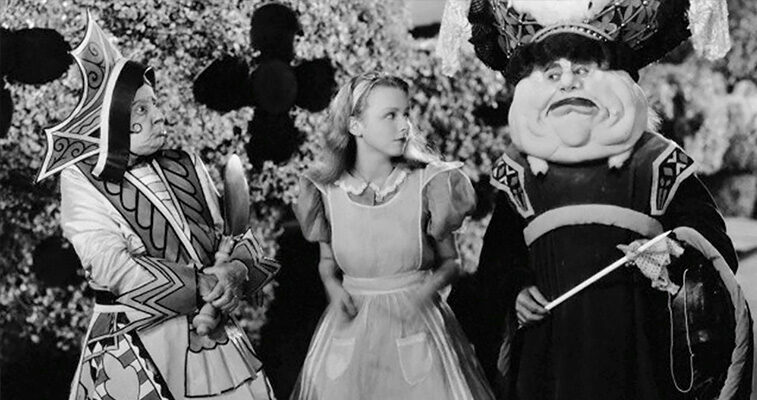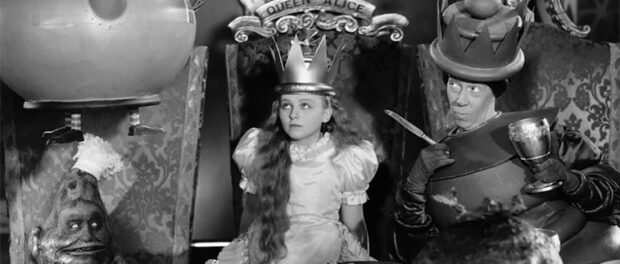Alice in Wonderland (1933)
[3]
I’ve never been a fan of Lewis Carroll’s source material, so I’m not surprised to find this 1933 all-star studio production of Alice in Wonderland to be another tedious incarnation. You know the story: a little girl (Charlotte Henry) goes into a mirror and meets one fanciful character after another until sweet mercy brings the credits rolling. The details don’t matter: She drinks and gets big, she eats and gets small, she chases a rabbit, has tea with crazy people, talks to cats and caterpillars, plays croquet with the queen, and on, and on, and on. Until finally, and arbitrarily, the dream (nightmare) ends.
In no iteration of this story is there ever a ‘ticking clock’ mechanism to propel the story forward. You never know how far along you are on the adventure, or how close it is to ending. More importantly, I never know why I’m on this adventure. I never get any meaning out it — no sense of a girl’s journey into womanhood, or of setting aside childish things. Even on a superficial level, I get no joyous sense of wonder and amazement. Alice, for me, is nothing but a claustrophobic experience that traps me with its screaming menagerie of annoying creatures until I beg for release. (I suppose it almost makes a halfway decent horror movie.)
This particular version is one of some distinction for those interested cinematic wreckage. Paramount Studios filled the cast roster out with pretty much every one of its contract players, so it’s a virtual ‘who’s who’ of early ’30s stardom. Among the names who stand out today are Cary Grant as the Mock Turtle, Gary Cooper as the White Knight, and W.C. Fields as Humpty Dumpty. These three men make the most of their roles, though Grant is only heard and never seen. Fields would be funny and memorable if every single other character in the movie didn’t try to be as frustratingly clever. The bizarre sets, costumes, and makeup effects are certainly noteworthy. The cumulative aesthetic becomes one of a crude, drunken nightmare — the film’s single-most distinctive quality, and the only reason to recommend it.
With May Robson, Richard Arlen, Sterling Holloway, Roscoe Karns, and Jack Oakie. Directed by Norman Z. McLeod (Horse Feathers, Monkey Business).


